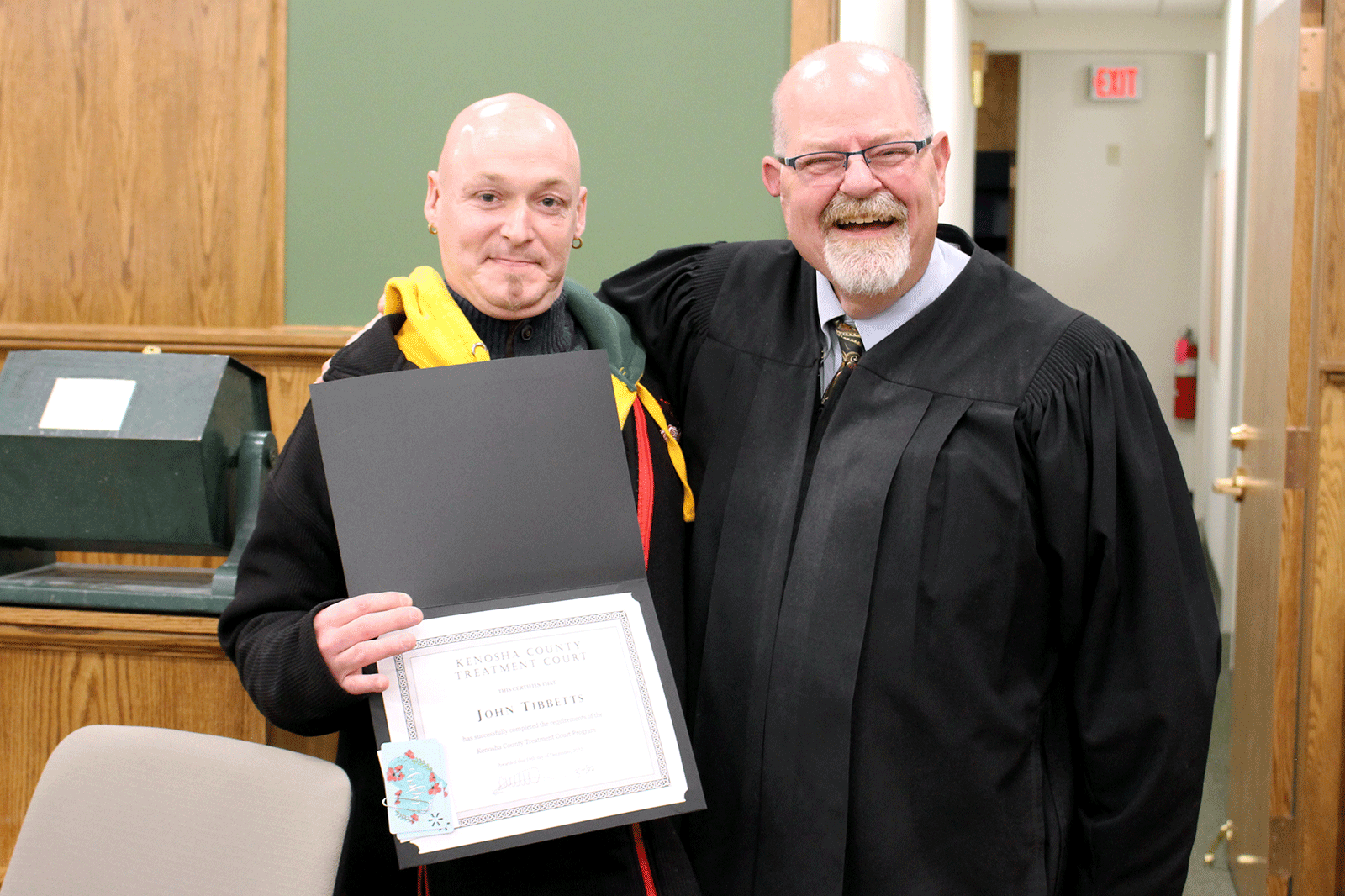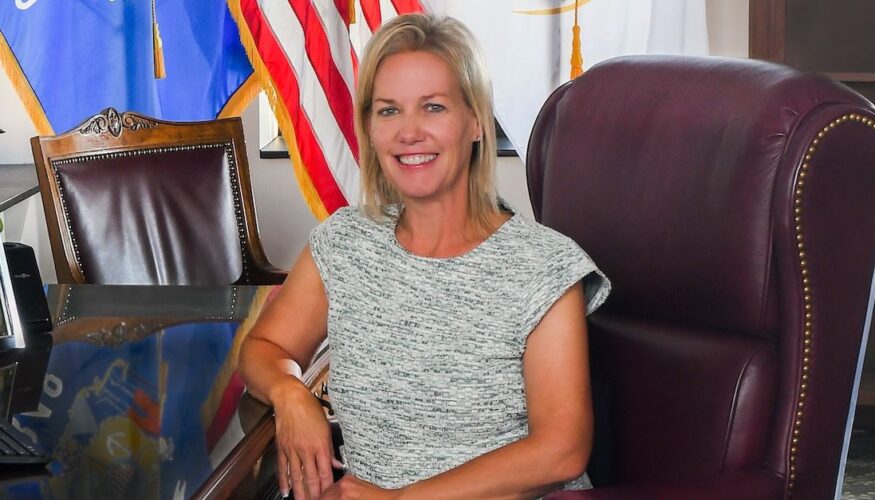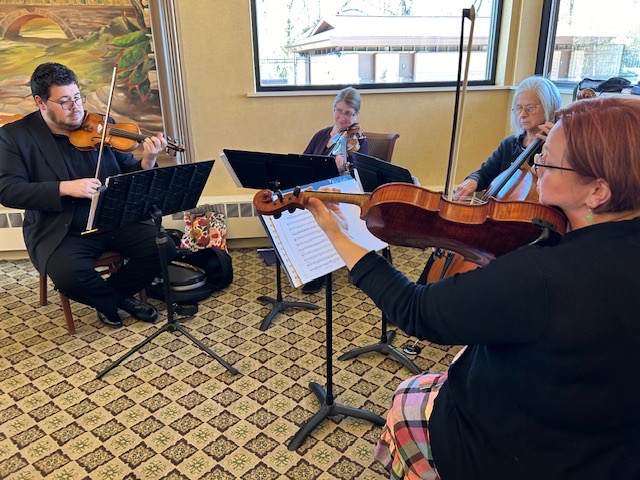John Tibbetts has now been drug-free for as long as any time since he was a teenager.
And at age 45, with a long history of substance use and resultant run-ins with the law, that’s no small thing.
Earlier this week, he took the next step in his new life of sobriety, as a new graduate of Kenosha County’s Treatment Court program.
In an informal ceremony late Wednesday afternoon complete with pizzas in the courtroom and well wishes from many in his Treatment Court cohort, Tibbetts spoke of his experiences with a program that served as an alternative to incarceration — and as a lifeline to end a cycle of substance abuse.
“I find it a lot easier to remain sober,” Tibbets said. “I keep the idea in the back of my head of where I was, and how easy it is to go back there.”
The Kenosha County Treatment Court is an intervention program for adults who have pleaded guilty to one or more crimes related to their severe and persistent mental illness and/or substance use disorder. Treatment intervention is structured around the authority and personal involvement of the judge and a team of Treatment Court professionals.
“I find it a lot easier to remain sober. I keep the idea in the back of my head of where I was, and how easy it is to go back there.”
– John Tibbetts, Kenosha County Treatment Court program graduate
Through this collaboration, the court seeks to provide a variety of programs and supervision that support and help maintain a stable life free from illegal drugs and alcohol.
Coordinator Brian Bynsdorp said the Treatment Court model is one that strives for change — in behavior, ways of thinking, and accountability.
“With that comes the opportunity to break cycles that are sometimes generations deep, and it affords individuals an opportunity to become the best person they can be,” Bynsdorp said. “This does not only benefit the participant, but also everyone in their lives, as well as every single one of us living in the community.”
Bynsdorp said participants who complete the program are no longer a potential expense to the community, and instead become meaningful contributors.
“It is priceless to see these transformations take place, and John is the perfect example of someone who put in the work and can reap the benefits for years to come,” Bynsdorp said. “He sees the value it brought to his life and only wants to share this hope with others. We have faith in his abilities and could not be prouder.”
At Wednesday’s commencement hearing, Judge David Wilk noted Tibbetts’ accomplishments.
“I’m very proud of him. He is very serious about his change of life.”
– Hector Navarro, friend of John Tibbetts
Since beginning Treatment Court on Jan. 27, 2021, Wilk said, Tibbets submitted more than 205 drug tests, marking his longest streak of sobriety in adulthood. In so doing, he’s become a role model to his peers and wants to give back and help others, Wilk said.
“I was quite frankly stunned by how insightful your comments were,” Wilk said, congratulating Tibbetts.
Hector Navarro, a close friend of Tibbetts, took the opportunity afforded by Wilk to address the court about Tibbets’ transformation. He described Tibbetts as “sticking like glue to his sobriety.”
“I’m very proud of him,” Navarro said. “He is very serious about his change of life. I’m very happy for him.”
Said Carrie Rudd, a recovery coach at Oakwood Clinical Associates and a member of Tibbetts’ Treatment Court team: “It has been a privilege for me to watch John grow from where he’s been.”
For Tibbetts, giving back in his new world of sobriety is poised to come in the form of facilitating support groups at the Bridges Community Center, where he began as a group attendee, and working toward becoming a recovery coach.
“I definitely think it’s amazing where I’m at,” Tibbetts said.
More information about the Kenosha County Treatment Court, including court contacts, is available at https://www.namikenosha.org/kenosha-county-treatment-court.html.












